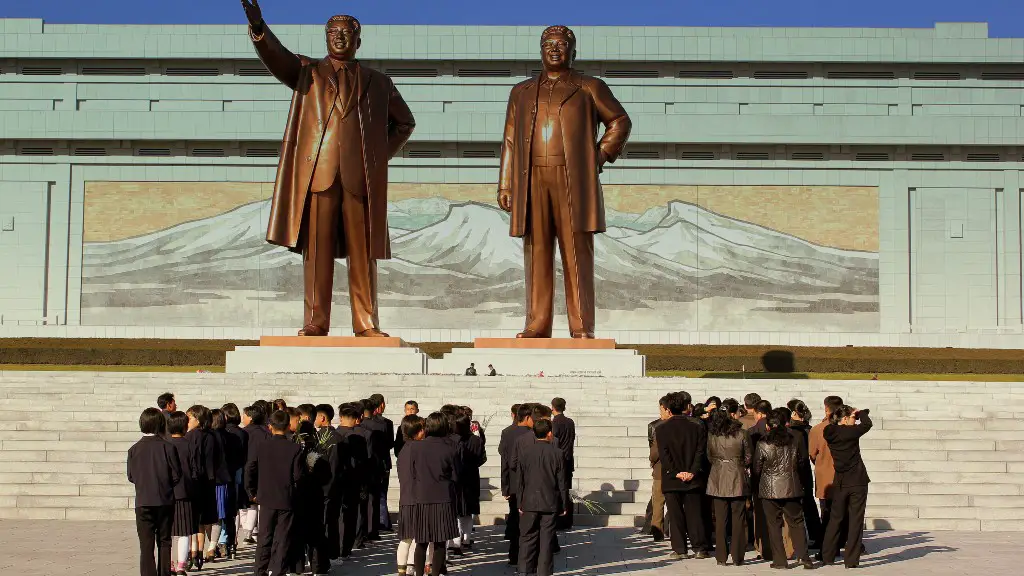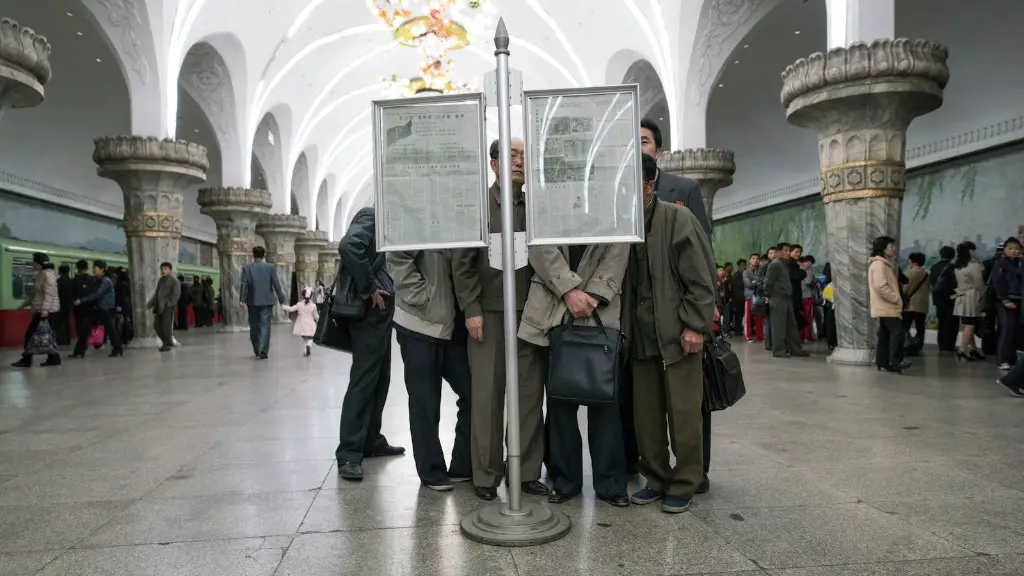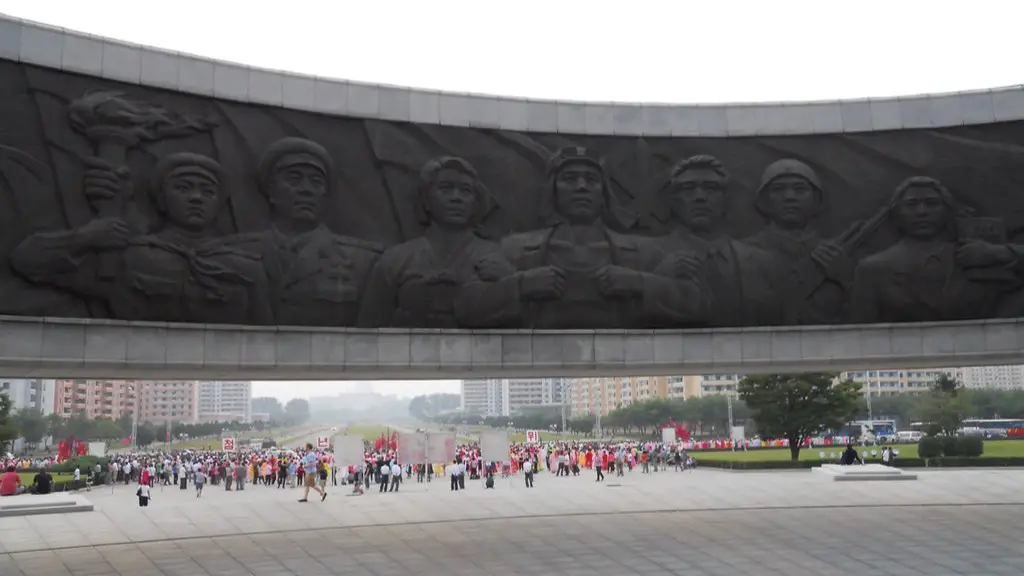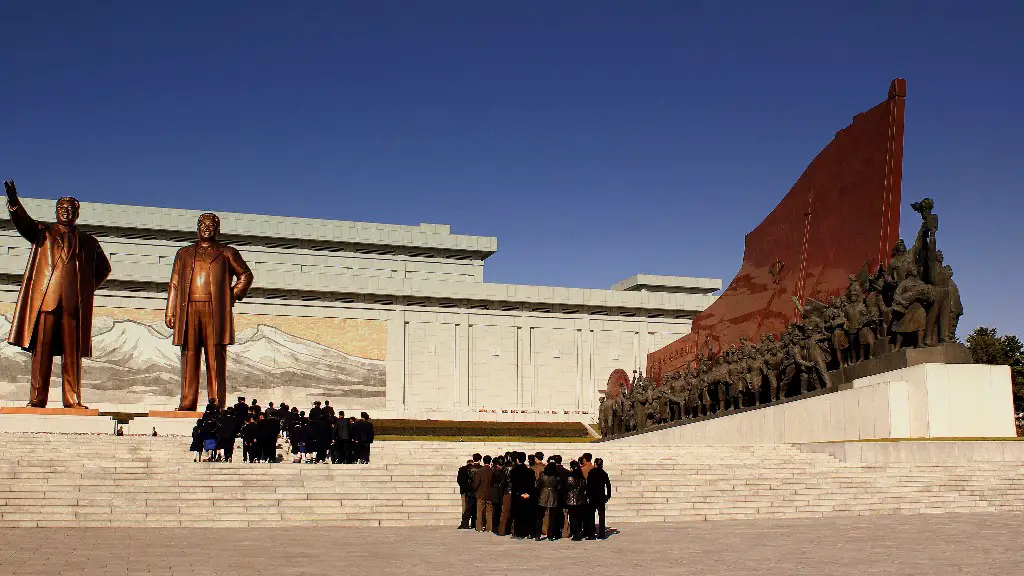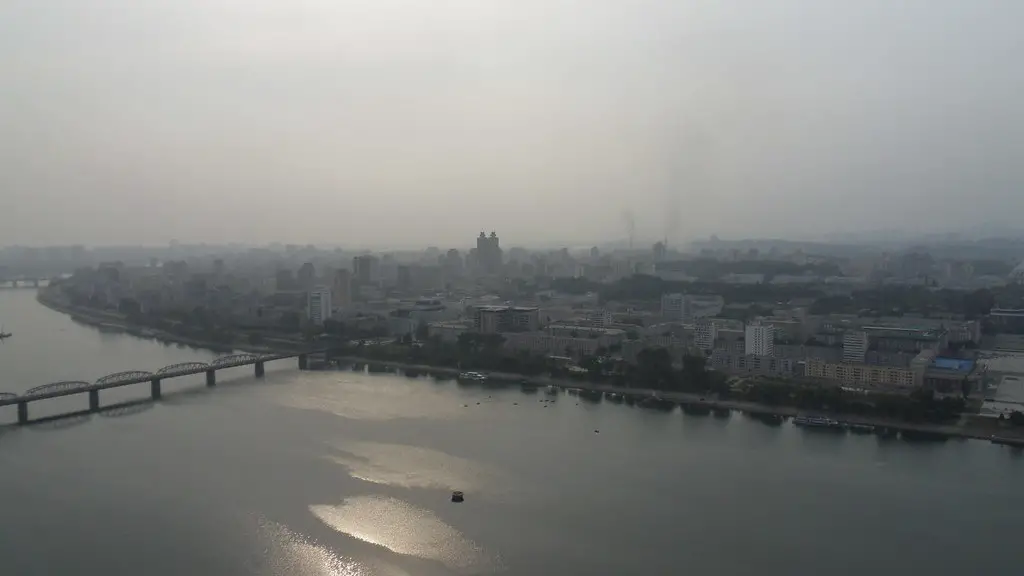When the world talks about North Korea, the main concern usually is will they start a war? This question has weighed heavily on minds ever since the Korean War in the 1950s, when North Korea attempted to expand into South Korea. Even though the war did not end in a North Korean victory, the threat of invasion has still haunted the South Korean government and its people. With tensions between North and South Korea now escalating, many people are worried that North Korea will launch an attack on its southern neighbour.
As the North Korean regime has developed nuclear weapons in recent years, the possibility of a military attack from Pyongyang has grown significantly. The regime now has the capability to launch a wide range of weapons, including long-range missiles. Despite international sanctions, North Korea has also continued to develop its nuclear arsenal and is believed to have stockpiled as many as 30 nuclear devices. This has increased the possibility that the regime might one day decide to use military force to achieve its geopolitical goals.
Although some experts believe that a North Korean attack on the South is unlikely, the possibility of an attack cannot be discounted. The regime has become famously unpredictable in its behaviour and the unpredictability of its leader Kim Jong-un has fuelled concerns that he might one day initiate an attack. In December 2017, Kim declared that he had completed the development of nuclear weapons and threatened to use them if “forced” to do so. This statement was echoed by his foreign minister, who said that North Korea was ready to attack South Korea “at any time.”
In the event of a North Korean attack on South Korea, the consequences could be catastrophic. This is especially true given South Korea’s close ties to the U.S. and the presence of American troops in the Korean peninsula. If North Korea were to attack, it is highly likely that the U.S. would respond with military force and this could quickly lead to an all-out global conflict. South Korea would be forced to bear the brunt of the attack and its people would be put in grave danger.
To protect itself, South Korea has bolstered its defences in recent years. This includes the deployment of advanced missile defence systems, such as the U.S.-supplied Terminal High Altitude Area Defence (THAAD), which are designed to shoot down incoming missiles. South Korea has also increased its spending on defence, with estimates showing that the country spent $45 billion USD on defence in 2018. These measures have helped to ensure that the South is prepared for any eventuality, but the possibility of an attack from the North remains all too real.
Given the volatile situation on the Korean peninsula, it is clear that the threat of a North Korean attack on the South is real and could have devastating consequences. The South Korean government has done everything in its power to prepare for a potential attack and this seems to have had some success in deterring the North. However, the possibility of an attack remains, and the South Korean people must remain vigilant if they are to protect their country and themselves.
Impact Of Diplomacy
Although it is unclear whether North Korea will ultimately decide to attack the South, diplomatic efforts could help to reduce the likelihood of an attack. In recent months, South Korean President Moon Jae-in has attempted to engage the North in a dialogue, with some success. The two countries have engaged in several high-level meetings and even held a summit in 2018. These diplomatic efforts could help to ease tensions between the two countries and ultimately reduce the threat of an attack.
However, it remains to be seen whether North Korea is truly committed to diffusing tensions with the South. The regime has long been hostile to the South and its efforts to engage in a dialogue could simply be a way of buying time to further its own agenda. In addition, it is unclear whether U.S. President Donald Trump’s tough rhetoric on North Korea will have any impact on the situation. Trump has shown no willingness to pursue a diplomatic solution, instead preferring to impose economic sanctions on the regime. This hardline approach could ultimately prove to be counterproductive, with the North feeling increasingly threatened and more inclined to take military action.
Ultimately, it is impossible to predict whether North Korea will ultimately decide to attack the South. However, it is clear that the country has the capability to do so and that the consequences could be devastating. South Korea must remain vigilant in the face of such a threat and the government must continue to pursue diplomatic solutions to defuse tensions with the North. Until then, the threat of a North Korean attack will continue to loom over the Korean peninsula.
Role Of China
Another factor to consider when looking at the threat of a North Korean attack on South Korea is the role of China. China is North Korea’s closest ally and the two countries have a long history of close relations. The Chinese government has historically been the main supporter of the North Korean regime and has played an important role in defending Pyongyang from international sanctions. As such, China could play an important role in facilitating a diplomatic solution to the North Korean crisis.
China has made some efforts to defuse tensions between the North and the South, including supporting economic sanctions on North Korea and sending senior officials to Pyongyang. However, the Chinese government has always insisted that the disputes between the two countries must be solved through negotiations and has refrained from taking a more active role in resolving the situation. As such, it remains to be seen how much influence China will have in determining the outcome of the North Korean crisis.
Despite its seemingly passive role, the Chinese government could still play an important part in helping to defuse tensions between the North and the South. China is one of the few countries that has influence in Pyongyang and it could use this influence to help bring about a diplomatic solution. At the same time, China’s close ties with North Korea could also be a source of conflict, as Beijing could be forced to choose between supporting its ally or supporting a diplomatic solution.
The role of China in the North Korean crisis is an important factor to consider when looking at whether North Korea will ultimately decide to attack South Korea. As the countries closest ally, China could be the key to bringing about a peaceful resolution to the dispute. However, the Chinese government has so far been reluctant to take a more active role and it remains to be seen how much influence it will have on the outcome of the situation.
International Reactions
A North Korean attack on South Korea would also have serious implications for the international community, with countries across the world likely to be drawn into the conflict. If North Korea were to launch a military attack on the South, it is highly likely that the U.S. would respond with military force. This could then draw other countries into the conflict, such as China, Japan and Russia, leading to a wider regional conflict. In addition, the repercussions of a war between the North and the South could also be felt across the globe, with countries as far away as Europe and the United States likely to be affected.
The international community has responded to the North Korean crisis with a combination of diplomatic and economic pressure. The United Nations Security Council has imposed additional sanctions on North Korea in an attempt to dissuade the regime from taking further military action. In addition, countries across the world have imposed economic sanctions on North Korea, with the goal of limiting the regime’s access to resources that could potentially be used for military purposes.
The international community has also sought to engage North Korea in a dialogue, with some success. In 2018, the leaders of North and South Korea held a summit, which was attended by the leaders of China and the United States. This summit marked a new chapter in North and South Korean relations, albeit one that is still tenuous. However, it is clear that the international community is keen to avoid conflict and is attempting to find a diplomatic solution to the North Korean crisis.
The possibility of a North Korean attack on South Korea is a serious concern for the international community. If the North were to launch an attack, it is highly likely that other countries would be drawn into the conflict, with potentially devastating consequences. The international community has responded to the crisis with a combination of diplomatic, economic and military measures, but the situation remains precarious. Until the international community is able to find a peaceful solution to the North Korean crisis, the threat of war will always loom over the Korean peninsula.
Political Implications
The potential of a North Korean attack also has political implications, both in South Korea and abroad. In South Korea, the government is under significant pressure to protect the country from the threat of an attack. The government has taken steps to strengthen the country’s defences, but these measures have not been enough to appease its critics. The South Korean public is increasingly demanding that the government do more to protect the country from a possible attack, with some even calling for the government to take a more aggressive approach against the North.
The possibility of a North Korean attack also has implications for politics beyond the Korean peninsula. In the United States, the Trump administration has taken a hardline stance against Pyongyang and has imposed economic sanctions on the country. However, some experts have argued that the U.S. should pursue diplomatic solutions to the North Korean crisis, rather than relying on sanctions alone. The possibility of a North Korean attack will be a contributing factor in determining the U.S.’s approach to the crisis and could ultimately shape the American government’s foreign policy.
The possibility of a North Korean attack on South Korea also has implications for the international community. A North Korean attack on South Korea would likely lead to a regional conflict and could draw in countries from across the world. This could have long-lasting consequences for the international community and could potentially shape the global political landscape for decades to come.
The political implications of a North Korean attack on South Korea are far-reaching and many countries, both inside and outside the Korean peninsula, could be affected by the outcome of the crisis. It is clear that the international community must continue to pursue diplomatic solutions to the North Korean crisis in order to prevent the outbreak of war and protect the Korean people from potential conflict.
Economic Impact
In addition to the political and military implications of a North Korean attack, the economic implications must also be considered. If North Korea were to launch an attack on South Korea, it is likely that the South’s economy would be severely impacted. South Korea is one of the most developed nations in the world and has the 12th largest economy in the world. The country has made great strides in recent decades and is one of the leading economies in Asia.
However, the economic impact of a North Korean attack could put all of this progress at risk. A prolonged conflict could result in significant economic losses, as the country’s infrastructure would be severely damaged. In addition, the economic sanctions imposed by the United Nations Security Council could also have a detrimental effect on the South’s economy, as the sanctions have already hurt the country’s export-dependent economy. In addition, the disruption to the region’s economic activity could also have a knock-on effect on global economic growth.
The economic impact of a North Korean attack could also be felt beyond the Korean peninsula. A conflict between the North and the South could cause disruption to global supply chains,
